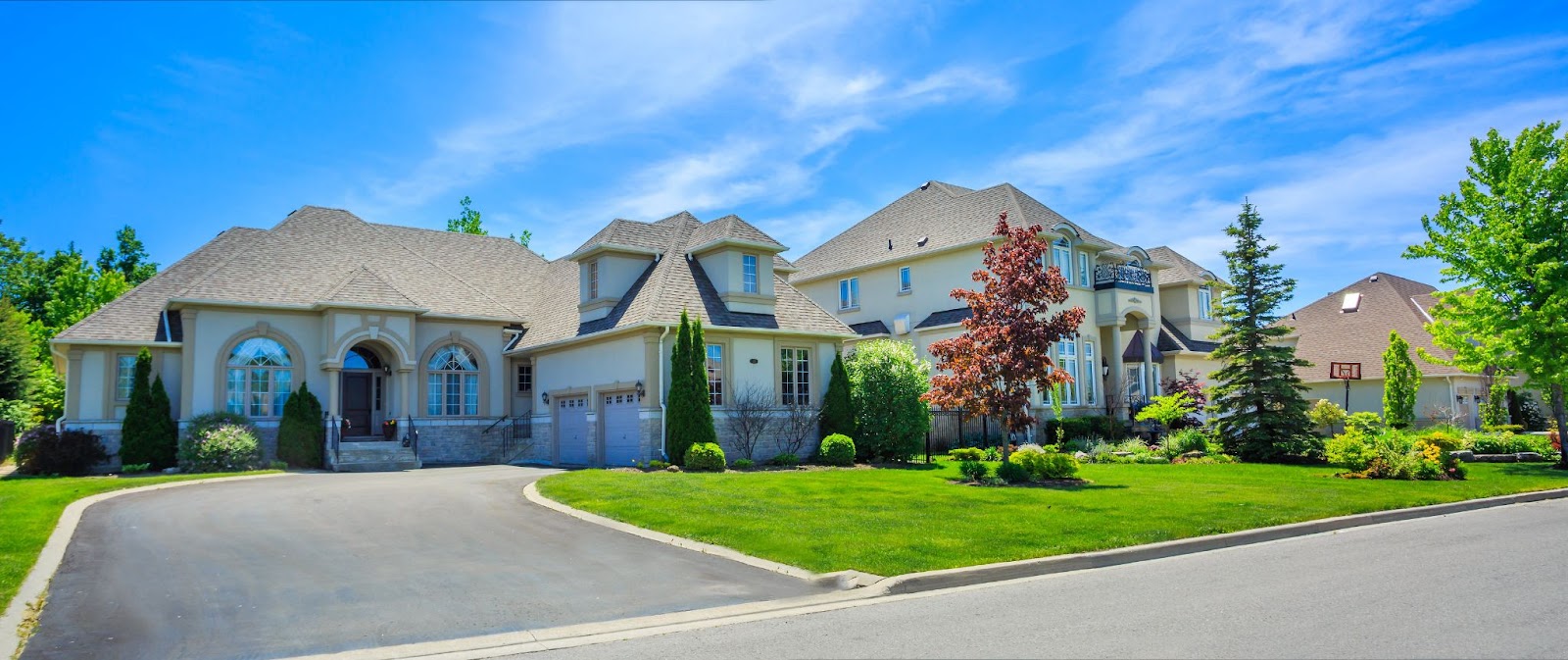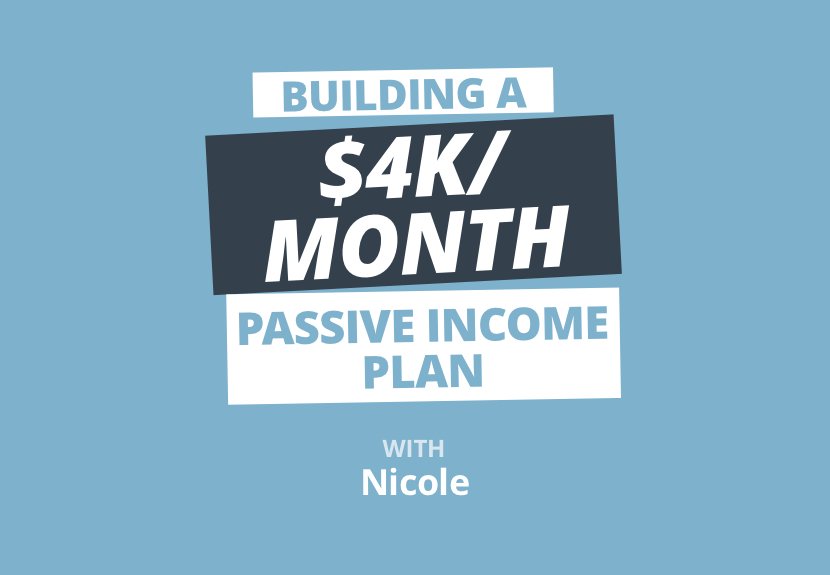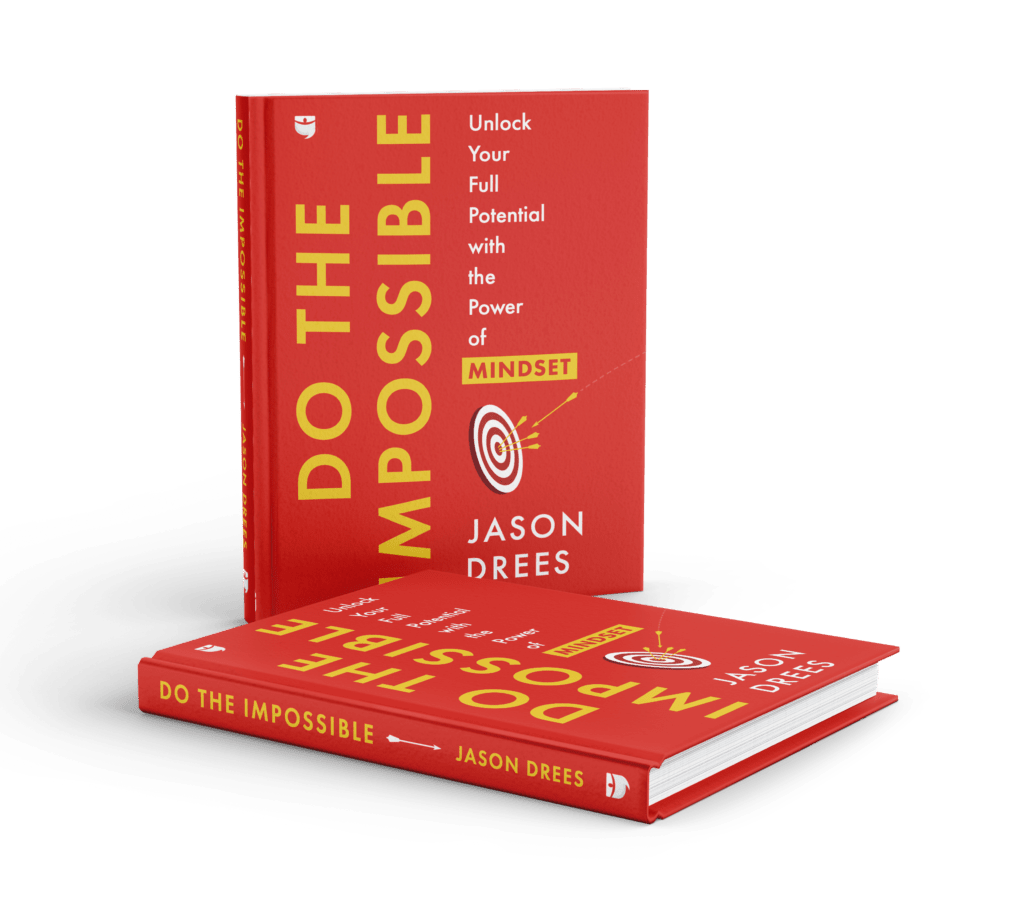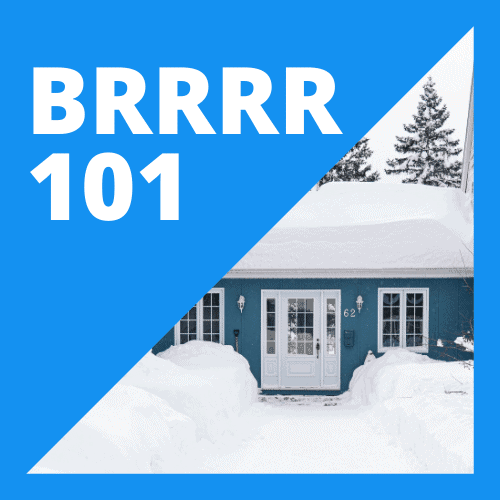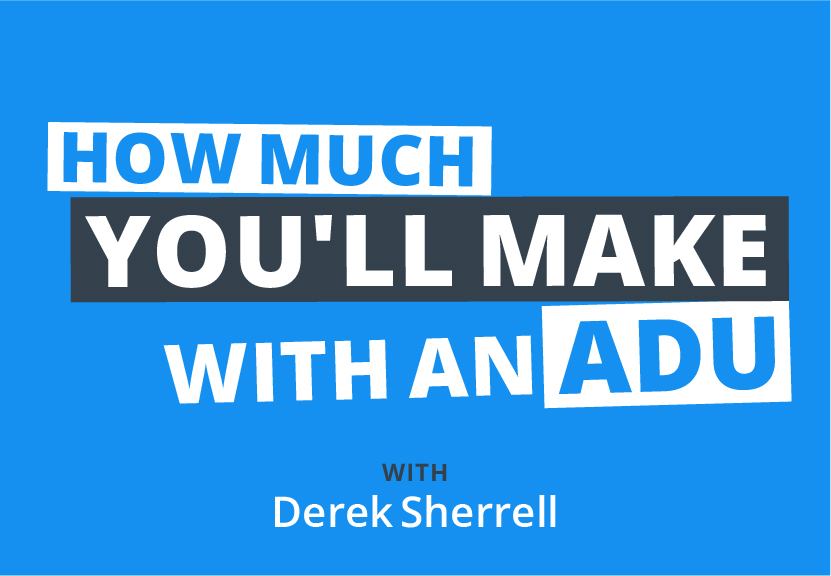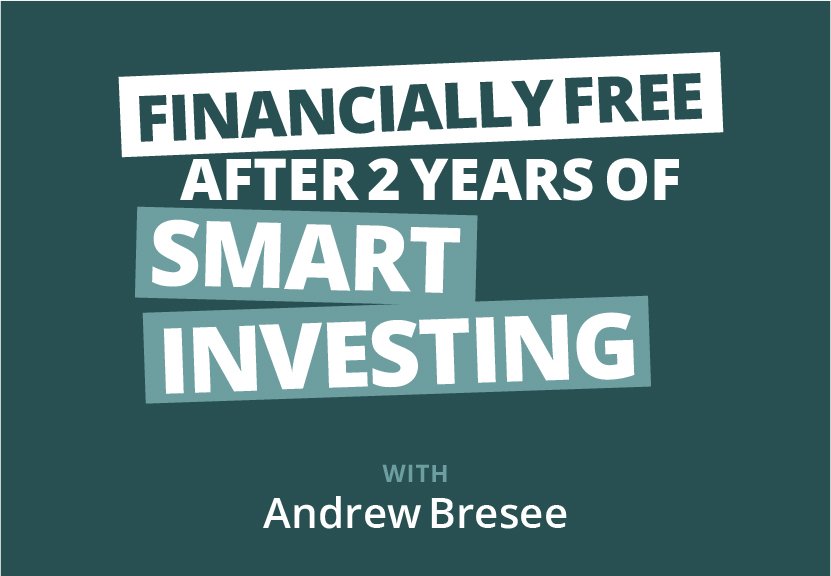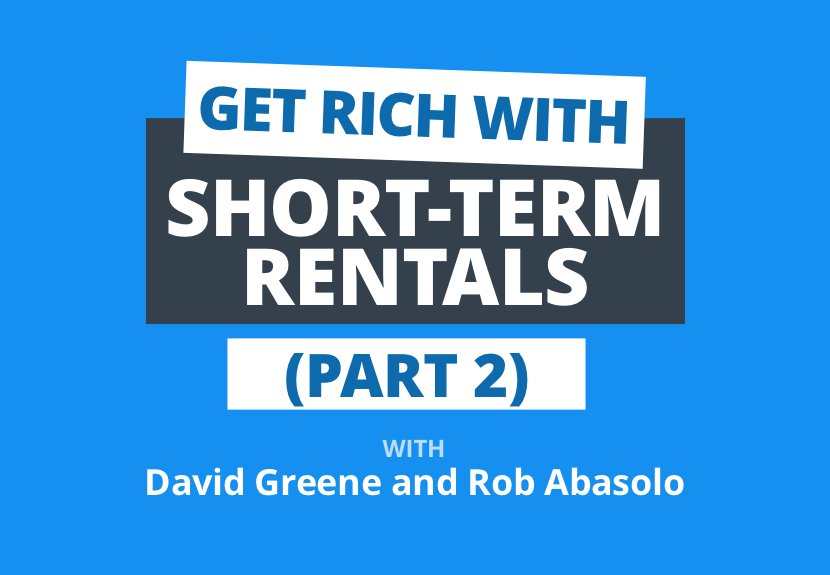David:
This is the BiggerPockets Podcast Show 581.
Derek:
You can sit there with the bat on your shoulder and watch all these houses come down the pipe. And when you see one that has ADU potential after you’ve done this a few times, it’s so obvious. It looks like a beach ball coming down, belt high, fast balling. That’s the best way I can describe it. Is you have this really easy criteria, and then you just sit there and wait for one to come along.
David:
What’s going on everyone, is David Green, your host of the BiggerPockets Podcast. The show where we teach you how to find financial freedom through real estate. We do that by bringing on different guests, as well as sharing information ourselves to sort of highlight for you what it looks like to find that financial freedom that you seek.
David:
Today’s guest is a specialist in accessory, dwelling units, or ADUs. If you’ve ever wondered, what is an ADU, why do people talk about them? Why are there so many acronyms in real estate that I don’t understand? Well you’re going to learn a lot about that today. This is a very, very, very relevant and important sort of like a hot topic that’s going around in the world of real estate. And we brought in an expert from Oregon who knows construction, who also knows ADUs, who does it himself, and then helps other people do it to share a lot of information with you. Henry, what were some of your favorite parts of the show we just did with Derek.
Henry:
Man, this is arguably one of my favorite episodes so far of the BP Podcast. And not just because I got to be here and co-host it, but the information that was provided was phenomenal. Because you’re right, it’s a topic a lot of people want to know about that not a lot of people are talking about. Some of the favorite parts of the show for me were him giving great tips and ideas of how to look at properties that you probably see every day.
Henry:
You may have walked five properties last week with your real estate agent. And maybe one of those would’ve been an excellent candidate for an ADU and you didn’t know that. He’s going to start to reveal to you what you should be looking for and I promise you, you’re going to have some aha moments about, oh, you know what, that house is a great one for this. Because I had two of those aha moments myself, just thinking through my market as he was talking.
David:
That’s how you know, it’s a great show, right? As you’re listening, when you’re like, ooh, ooh, I could go do this thing. That’s exactly what we’re looking for.
Henry:
Yeah. Just what I needed, another strategy to go look at for real estate. But yeah man, it’s phenomenal. He also gives a great, great tip for how to speak to people, especially when you’re going to do these ADUs, you have to talk to the city, city council members, planning commissions, right? He gives a great tip on how to approach them to not only get their expertise on your plans, but to essentially help them green light what you’re trying to do.
David:
Yeah. We cover that in the fire round. So make sure you listen all the way to the end where we get into the fire round, where Derek gives some really practical advice that’s sort of unheard of. We don’t hear many people that are actually helping you walk through the permitting process with the city.
David:
And then he gives a really good point about how, if you go the traditional method, you might have a 20 page report of code that you have to abide by. But if you go the ADU way, it might be actually 20% of that much, much smaller. So the ADUs provide a workaround for a lot of the common problems that investors face. So if you’re somebody who has often wanted to invest in a market that you feel is too expensive or wouldn’t cash flow, or you just don’t want to pay the mortgage to buy a house there, this is an episode for you.
David:
If you’re a creative person who says, “Hey, no, I’m willing to do some work to make this deal work. I want to make real estate work.” This is a deal for you. And if you’re somebody who’s just curious, like why does everyone talk about ADUs and what does that even mean? And you don’t want to feel like you’re left out of the next meetup or the next party you’re at, this is an episode for you.
David:
Today’s quick tip is brought to you by me, David Green. In today’s market, we mentioned in the show, you don’t find a great deal. You could find a great deal, but it’s probably going to be a great deal that just finds you. If you go looking for it, it’s very difficult to find, but you can make a great deal. So I want to highly encourage you to look at property from a creative perspective and ask yourself, how could I make this work?
David:
And if you do that for long enough, you’ll start to find patterns in properties and floor plans that you will recognize when you see them. Once that happens, you’re going to need a person who’s going to help you with writing an offer, doing some research. Don’t try to do it all yourself. BiggerPockets has an agent finder system that will connect you with a real estate agent that you can reach out to when you have questions, just like from today’s show.
David:
What I love about it is that your agent is probably listening to the same podcast that you are right now and they’re learning all the same things as you. So I like to try to keep it within the BiggerPockets community whenever I can. Henry, anything you want to say before we bring in Derek?
Henry:
Yeah, man. I just want to encourage people to listen with an open mind. I know for me, I’ve thought about ADUs, but the second you start digging through city codes and ordinances and having to call the city, it kind of gets overwhelming, especially if you’re a new investor, I’m a seasoned investor. But what our guest Derek kind of points out is that this is a whole lot easier than people think on the front side.
Henry:
And so listen with an open mind about this ADU strategy and it’s a pretty flexible strategy. You can have them attached, you can have them detached, some are cheaper to build, some of them more expensive to build. And it’s just, you can take something existing and convert it as it sits.
Henry:
There’s a ton of ways to take this ADU strategy and make it profitable. And I think you just have to have an open mind, take some notes and our guest is just, he’s just so kind and thoughtful and ready to help. So this episode comes with a teammate for you to reach out to and get help. I love of this episode.
David:
Great point my man. Appreciate you pointing that out. All right. Let’s bring in Derek. Derek Sherell, welcome to the BiggerPockets Podcast.
Derek:
Thank you David. Glad to be here. Thank you.
David:
How are you today?
Derek:
Better than I deserve.
David:
That’s a Dave Ramsey line, isn’t it?
Derek:
Hey thanks, you get bonus points for calling that out. Honestly, if I was any more excited to be on BiggerPockets today, sharing this ADU strategy with all the listeners, I’d probably fall out of my chair, and I’m not kidding.
David:
I’m really glad to hear that. I hope you don’t, but I understand. I believe you’re a firefighter, right?
Derek:
Yeah. I put my seatbelt on.
David:
Okay. So if you fall out of your chair, you’re the best person qualified to sort of get yourself back out of it. Again, we don’t have to worry about you being stuck-
Derek:
Copy that.
David:
… and not able to get up. So tell us, what does your business look like? What’s your portfolio look like and a little bit about yourself.
Derek:
Yeah, thanks. So my portfolio consists of six primary houses, 14 units total. And what I do is I’m a buy and hold, build and hold investor. And I’m looking for a property that I can either convert, attach, or build a detached accessory dwelling unit, turning a single family property into a small multifamily. And my goal is to create the best product on the market, a product that’s really high demand, low supply, and get the best tenant and place them in there and then teach the tenant how to do this process. And I also like to teach first time home buyers how to use this strategy to break the barrier of home ownership.
David:
So how did you first come across this idea of incorporating ABUs into existing properties?
Derek:
By complete chance, David. I started an apprenticeship in high school. So I got into this construction technology class when I was 16, and Oregon was on the cutting edge of accessory dwelling units in the country. And we had a two term class where we were building a guest house for one of our teachers. That’s where I saw the process. I later became a carpenter. I was a licensed finished carpenter for years and I was building accessory dwellings and guest houses in Southern Oregon, Ashland, Oregon. And this was a product that was right before my very eyes the whole time. It wasn’t until years later that I realized it was actually an investment vehicle that I could attain myself.
David:
Now you have a construction background, is that right?
Derek:
Yeah. I was a builder and like I said, I started apprenticeship in high school and right after high school, I got my contractor’s license and this is back in the run up of the great recession. So everybody was a builder. Everybody had a truck and a lumber rack. We were all making really good money, so we thought at the time. Everybody was buying boats and little did we know there was this huge crash that was coming a few years later. So that was kind of, I got started in the height and I got out as everything was falling, the whole Cardhouse just started collapsing.
David:
So it sounds like you sort of built your skillset when it was really popular to be in construction. It fell apart, you got in something more stable. So now you’re working as a firefighter, but you still have those skills. And now you’re seeing, “Hey, there’s a lot of demand for this stuff. People are looking to fix their houses up again, right?”
Derek:
Yeah, exactly. So as we know in healthy economic cycles, we have this kind of ebb and flow and this up and down. And where the idea really came to fruition for me was when I was looking to buy my second house. I bought a home and I got into real estate on accident. I bought a house in 2004 and I was that guy. I was the subprime poster boy.
Derek:
So I went in to get this loan. They said, “How much do you make?” And I said, well, I don’t really know. And they told me, this is what you’re making, we’re doing a stated income. And they said, these are your assets. I didn’t have those assets. And I was able to get this subprime mortgage on this house.
Derek:
So a long story short, when I moved into town to pursue a career in the fire service, I needed to find something a little bit closer to the municipality. And the only way I was going to be able to buy a house, we’re a high market. Our average value in our two towns, average sales price is from 400,000 to 700,000 in the two towns. So it’s a high barrier of entry. And the only way that was going to be achievable for an average guy like me, was to have income property attached to a single family residence that I could buy for 5%.
David:
So you sort of had to house [inaudible 00:09:56] in order to make it work with the job you wanted to have?
Derek:
Absolutely had to. And this was before house hack or it was curl locked or before bur this was just common sense. It was like, how do I do the math? So I can have a home. I grew up in apartments and my path to real estate was how do I have a roommate at my first place? And then the second place, how do I build an accessory dwelling unit? So I can start to be an adult and not have a roommate, but still have income coming in from that primary property.
David:
Well, they say necessity is the mother of invention. And I think in this case that worked out. Now, this first ADU, did you build it from the ground up? Did you buy something? Already had one? How’d you make that work?
Derek:
Yeah. Great question, David. And this is what I teach people for free. This is what I’m so enthusiastic about for first time buyers is, you have to look for a house that has potential to do a conversion. Some people call it carve out. So this first house, it had an attached space that at one point was a music studio. So it was completely finished, it had a bathroom in it, it was basically Turnkey ADU.
Derek:
And so the thing that I try to tell people is, go with what you have. If your price point is only going to allow you to do a conversion ADU, because that may cost 20, you want to stand alone, may cost 120, set your goals and go from there. But that project was an attached ADU that was already 90% done David.
Henry:
That’s super cool, man. This is an interesting strategy. It’s one that I’ve thought about several times. And it’s one that I think a lot of people, especially people in higher price markets such as yourself are looking into. So it’s great to talk to somebody who’s putting it into actual practice. So talk about kind of in a little more detail on your first deal. So did you go looking specifically for property that was set up for an ADU and how did you go about deciding what kind of an ADU and kind of what that process looked like on your first deal?
Derek:
Yeah. Wonderful Henry, thanks. This is not just my first deal. For our audience, these few criteria, this is for your next deal or your first deal, for what that’s worth. I look for the zoning code. So in order to deploy this strategy, you have to become an expert in ADU zoning. And it sounds really extravagant but it’s not. Most accessory dwelling unit codes are like five pages or less. So when I say you need to be an expert in ADU code, you need to spend about an hour reading something and digesting maybe a couple phone calls to ask some questions.
Derek:
But to circle back to the question, I had a crystal clear criteria, even before I knew what a crystal clear criteria was. I knew this is a town, an accessory dwelling unit attached interior or detached is an allowable use in that zone and I could meet the standards. So after that it was like, is this a place that I could live forever with my family? That’s kind of my meter. How’s the crime, how’s the transit, how’s the jobs, could I live here forever? And then can I fund it and make it work? So it’s that simple. Is it an allowable use? Would you want to live there forever? And can you pull it off? Does it make sense financially?
Henry:
So when you say, would you want to live there forever? Are you using that as just a criteria? As that’s just something Derek wants to own or is that a criteria because some of these uses require you to live there?
Derek:
Yes and yes. So my thought is I’m going to live there for the first year before I go do it again. And my second thought is my criteria, my needle and my stomach, could I live here forever if I have to? If there’s a downturn like there was an ’07 and all my friends lost their boats and their houses, would I feel comfortable moving up here into this place? Could I live here with my family?
Derek:
So that’s kind of my gauge of my criteria. And then the second piece of that is a great question. I’m glad you brought it up because part of becoming an expert in your ADU zoning is some areas do require a residency requirement in the primary or the accessory. So in other words, I was doing a little research recently in Arkansas, and there’s a small town where you can have two ADUs, one attached, one detached, there’s no limitations, there’s no residency requirement.
Derek:
And then there’s a town, just a couple, one county over and they allow one accessory dwelling unit and you cannot rent it unless it’s your primary residents. So if you’re an investor and you’re going to stack all these up, you may not be able to deploy this strategy. But what’s so powerful and what we know and what I know from almost 600 episodes is that it’s not the first deal that we go big on. It’s not the first deal that builds wealth. It’s the first deal that lights the fire in our belly and says, “I’m a normal a guy or girl, and I can do this.”
Derek:
So that’s really what I kind of coach people into the code and say, “Hey, if this is an area you’ve identified, can you build an ADU? Do you have to live in it if you do?” So that’s kind of a long winded answer Henry, but there’s just so much information. It’s hard to kind of keep those short and brief.
David:
So this next section, Derek, we’re going to sort of get into what challenges you faced, how you overcame those and like what you learned through the process of having to overcome some hurdles.
Derek:
One thing I’m really proud of and I don’t know it’s worth even mentioning, but the coaching I’m doing right now for all these homeowners, it’s not freely like getting no down payment, it’s free like I’m giving my time. BiggerPockets has given me the tools to go become wealthy and on a scale that I consider, and now I have the time to go give this away. So that kind of is the intro into the fire stuff, and my town did burn down. Can be hard to talk about at times, but that’s kind of the back wrap.
David:
Well, I think the ADU strategy is super popular right now, mostly because there’s a shortage in housing, people need places to live. Housing is expensive, so people are willing to get a smaller property to have less of a payment. And then if you’re the investor who wants to own the asset, you’re trying to figure out how do I make an expensive of asset cash flow? I need another unit that I can rent out, another source of revenue. So ADU is kind of work for almost every single perspective here in how to make real estate work when it’s hot.
David:
Now, I’m sure that could be a problem if there’s not a lot of people that need to rent in an area, if the population is shrinking, but right now that’s not our issue. So as you sort of said, hey, this is my niche, I’m going to continue to replicate it and keep moving. What are some of the challenges that you faced in doing something that not a lot of other people are doing?
Derek:
There’s a lot of challenges that come with kind of being first to market. Not that I’m the first person to build ADUs because I’m not. But a lot of people in the town that you’re in may not know that it’s an allowable use because single family zoning for years and years and years has kind of been the gold standard for planning in this country. And as we get more open to infill, especially in these appreciating markets where there’s a higher demand for housing than there is available units, some of the challenges are just literally educating the cities at times of their own code because city planners have so many things on their mind.
Derek:
They’re looking at flood Plains, long term master plans, housing needs analysis. They can’t dive in as detailed as we can. So one of the challenges is just kind of educating people that is allowable use, the neighbors.
Derek:
So if you’re doing infill build, a lot of people, they really value their privacy. And there’s an area in your backyard that they’ve looked over for years that they actually kind of feel like is their backyard because of their view. And all of a sudden you go out there with an excavator and you’re digging a 20 by 40 pad in the ground. People can kind of get their hackles up rightfully so.
Derek:
Another challenge that I’ve seen come up is costing. So people think because it’s small, it’s going to be really affordable. And it’s quite the opposite of that. When we’re building, we don’t really have an economy of scale on a small unit because we have all the infrastructure, all the system development fees, all the appliances, all the amenities of a large custom house, but we don’t have any volume to kind of cost average that in.
Derek:
So those are just a few of the challenges. Maybe one more I would add, and this one could be debated in its own show, but would be, what is the best way to finance them or why are they so hard to finance? And the reason for kind of all four of these challenges is just because they’re new. As a planning community, as a building community, as people in general, we’re really just slow to change, we’re archaic, we don’t like to move this big ship and do something new. There’s probably 100 benefits, but those are four challenges that I’ve brought up against doing exclusively accessory dwelling unit as a strategy.
David:
Yeah, that’s the same thing that I’ve found with our clients that want to do it. Here’s a common question that I’ll get. Hey, David, I want to buy this property or maybe they already own a property. They say, I want to build an ADU. And it’s going to cost $125,000 to build it, but it will then create this much cash flow. And so it’ll bump my ROI up to this point on my current house, or at least my cashflow.
David:
And I’ll look at that and I’ll say, “Well, here’s the issue, that isn’t going to add $125,000 of value to your home, guaranteed.” It might be more, it will likely be less because at this stage, their new appraisers are not at those in every circumstance like they’re as valuable as I think the market is saying that they are.
David:
So it’s going to be tough to get your money back if you do that. And because you can’t finance it, it’s the equivalent of $125,000 down payment that you could make on a complete different property. And then you’re getting to buy, a $500,000 house with this $125,000 down, instead of just adding $125,000 ADU to your property. What is your answer to the people who find themselves in that situation?
Derek:
The answer is kind of multifaceted, but I would… First I would say, it really depends on your goals, because if your goals are to scale, it’s not to put that 125 down, it’s to go by two properties with 25% down potentially. But I would say if you’re thinking of building an accessory dwelling unit and you own a home and you’re talking to David, you’re in an appreciation market and there’s a high likelihood that you have good equity in the house that you’re already using and maybe not all of it, maybe you don’t get the whole build cost.
Derek:
But what we’ll do is we’ll set up a financial stack where we’ll, we’re going to take funds from wherever we can, home equity being a good one. There’s another great product for somebody in this scenario for that question, David, that has a house.
Derek:
Maybe they refied, they were smart, they refied last year and they’re under 3%. So they don’t want to do a cash out refied because they don’t want to set that back up at 4% today. But maybe they’ll look at a second loan or maybe they’ll look at a potentially a custom construction loan or there’s a product called a HomeStyle Renovation loan, that’s a Fannie Mae product where you can get a loan depending on your loan ability, 75% to 95% of finished value.
Derek:
So in that case, your client comes to you and says, “David, I own this house in XYZ, California. And I want $125,000 ADU, but I don’t have any equity, but I am lendable, I have good credit.” I would say those are three really good options to look at. But it all depends on your goals.
David:
Yeah. That’s a great point. If your goal is build as big of a portfolio as you possibly can, as fast as you can, it might make more sense to take that same equity and use it to buy more property. Assuming you can. Some markets are so hot that you just can’t get a house at all.
Derek:
Totally. And the last thing I would add, and it’s very important and I don’t mean to interrupt, but it is kind of an issue, like how do I fund this? And what I do is it’s a mindset, do I think about it is this is going to be hard to fund or do I think about it as, oh my goodness, I live in one of the most highly appreciating areas in the country and I have a free lot, how do I build a small house on my free lot?
Derek:
And if we change our mindset and we look at it that way, it’s not a problem, it’s a solution. So again, it’s just about goals. So it’s not the greatest and best use in all areas. And some of these neighborhood protectors, which is the new term for NIMBY, because NIMBY is not really appropriate, but neighborhood protectors, they have good points and some of them, they don’t think it’s the greatest and best use in their neighborhood, and some of them are right. So that’s worth noting too. David, thanks.
David:
Well, one of the areas that I’ve found that does make it a no brainer, because I’m in this situation all the time where clients come to me and they say, “David, what do I do with my money? How do I get it the biggest point?” So I have to work through the same things that you are. If it’s building it from the ground up, it usually makes sense, if you love the house, you’re going to live in it. You want to place that you can include in that area and adding square footage to your property is going to make the value go up.
David:
So like in the bay area where I am, this makes a lot of sense. In many cases, this can make sense. It wouldn’t make sense in the example that we said where you’re just trying to get the most value that you possibly can out of the money.
David:
Another scenario where it is a no brainer is when there is an existing structure on the property that could be converted into an ADU without having to build it from the ground up. So do you mind sharing Derek a little bit about when you do that, what to look for? What are the things that you want to see in a structure that will reduce costs? Sometimes I’ll see a shed and my client will say, “Hey, can we convert that into an ADU?” You might as well, that’s going to be more expense because you have to get rid of the shed. So what are the things that they want to be looking for in the structure?
Derek:
Yeah. David, just so you know that’s all solid gold, that’s solid gold, that’s awesome. So what I tell people to look for in a structure is what’s easy? You’ve been talking for years, David, about house hacking and if you see something on the MLS, that’s a three, two and has 1800 square feet or 2100 square feet, you always know you’re getting another bedroom.
Derek:
It’s the same exact lens, you just shift it a little bit. And it’s like, “Okay, we have this big Gotti formal dining room and there’s already a bathroom over here. We have 400 square feet. It’s vaulted.” I mean, I’m talking about pulling the permits, paying system development fees and spending $500 to put up a firewall, two layers of 5/8 Type X to get life safety protection, carbon monoxide detector, and a smoke detector, and a kitchen.
Derek:
So there’s opportunities that are very, very easy and very, very affordable, like you said, an absolute, no brainer to convert them. And I’ll share a quick story with you. I get calls all day long about ADUs and I did a walkthrough with a lady in Ashland, Oregon yesterday, who’s a first time buyer.
Derek:
So I said, “Hey, I’ll come give you my two hour free consultation.” And this property she’s under contract with it, $565,000, it has an 11, which is a really weird number, an 11 by 26 detached permitted legal shop. So it has 100 amps of power, it’s finished, it’s got drywall it’s roof. I mean, it really just needs a bathroom and plumbing and she can turn this thing into an accessory dwelling unit. And I get it there and we do the figures and then we’re looking at SDCs, and we’re looking at kitchen, and we’re looking at a sewer tap.
Derek:
And I said… We were an hour into this, and I said, “Well, what are your goals?” And she said, “Well, I was just, I kind of wanted to just get a roommate, I’m only one person.” This is a house that’s almost 1900 square feet, it’s a huge cabin style, two, two. And I said, “Let’s go in the house.” And we walked in the mud room, which is now after I left is the kitchen.
Derek:
So we walked into the mud room and there’s this big dice area, there’s a big, beautiful bathroom and a huge bedroom, and there’s 136 inch transit walkthrough into the kitchen in the main house, in the other living quarters. And it was just like, bam, right there. I mean, we were looking at spending $50,000 for her to potentially convert this little tiny narrow structure that would not have really efficiently fit a bed and a bathroom.
Derek:
And we go inside and there’s another opportunity, that’s a couple $1000 that accomplishes the same thing because she wants to live alone, she was already going to have a roommate. And so it’s really about going into a property with the lens of how do I meet my goals?
Henry:
And that’s awesome. So what I hear you saying is really, as you’re looking at these properties, if you’re somebody that’s thinking about doing an ADU, it doesn’t always have to be an external ADU, and you can look at a property and what David preaches and kind of what you said is exactly right. If you look for these houses that are three twos with over 2000 square feet or two, twos with, 1500, 2000 square feet, there’s obviously extra space in that house.
Henry:
And so if I’m hearing you correctly, you just have to be kind of mind present or thoughtful of that space and try to envision, Hey, is there a bathroom close by this additional space? And is there a way we could put a wall up at a kitchen and then maybe some way for them to access that space? And then now you’ve taken something that was already under roof and made it to unit. Is that what I’m hearing?
Derek:
Oh, that’s right on the money Henry, all day long home run right there. And the thing about that too, is we have to plug this is you’re buying this single family turn duplex potentially for 5% down while you live in it for a year and then you go do it again. Unlike a lender, that’s going to say, Hey, if this is an investment loan, you have nine, maybe 10 before you get out of nonconforming loans. Owner occupied loans, you could do this 100 times, not that you would want to.
Derek:
But more to your point Henry, Warren Buffet talks about this book that Ted Williams wrote, The Science of Hitting. And Ted Williams took the strike zone and he cut it into 77 different cells, each the size of a baseball, and he realized what he would bat if a pitch was in his strike zone or out of his sweet spot.
Derek:
And this is the same thing with ADUs and MLS or off market single families that have ADU potential. I just, you can sit there with the bat on your shoulder and watch all these houses camo down the pipe, and when you see one that has ADU potential after you’ve done this a few times, it’s so obvious. It looks like a beach ball coming down, right belt high fastball.
Derek:
And sorry, I don’t have a better ju-jitsu analogy for David, but that’s the best way I can describe it. Because you have this really easy criteria and then you just sit there and wait for one to come along.
David:
Well, the reason I suck at ju-jitsu is I don’t have that perspective. I don’t know what I’m looking at when this person’s coming at me. It’s, I’m the newbie in this world and I’m like, “What do I do when this happens?” And you watch the people that are good and they don’t even think they’re just like, “Why would you leave your hand down right there?” They’ve jumped right through. So it is encouraging when you’re saying “Henry, did you have something you wanted to add?”
Henry:
Yeah, no, I was just going to say it’s like the red truck theory, right? Like once you know what you’re looking for, once you’ve seen it a couple of times now, everywhere you go, you can spot it pretty quickly.
Derek:
Definitely. Yeah. That’s awesome.
David:
The last thing I want to run by you, Derek is the expert here is one of the areas that we found a lot of success for our clients, because basically we’re like scavenger hunter in probably the hottest market in the country, the Bay Area right now, we have to try to find a way to get a person in there with outbreak in the bank.
David:
And so I’ve become incredibly creative at finding floor plans and opportunities like what you’re saying. Garage conversions have been really, really big. Can you share any insight that you have as to what to look for and how to execute a garage conversion?
Derek:
The number one thing and we’re not thinking about it, probably not even on our radar, is that, can we meet the parking standard in the outline zone if we turn our garage, our parking spaces that we use to meet the standard into living space? So that’s where it goes back to my step one of my crystal clear criteria, you have to become an ADU zoning expert.
Derek:
So the garage conversion is the most attainable, it’s the most affordable, but it’s also really hard if you have a parking standard. I can’t speak intelligently for California, but I know in Oregon, January 1st, 2018, we passed a house bill that required that all cities and municipalities in our state remove a parking requirement for the first accessory dwelling unit. But to further dig into your question is that the ADU conversion into a garage is amazing.
Derek:
And if you have clients in a really, really high price market, I’m sure you know this strategy, David you’re super sharp, you’re a lender. You have all the angles. But one to think about if you haven’t is, if you can bring a design to the closing table and you can bring a license contractor that meets the needs of the lender, you can bring that custom construction loan to the table with the primary loan and you wrap it all into one deal for 3% for a first time buyer.
Derek:
So if you have a property in your market, that’s a million dollars and they want to convert the garage for 100,000 and it will meet the siding and design standards in their zone because you’re now an ADU expert or you called me and I told you, and you can meet the parking, you can show up to the closing table with the finished value of that accessory dwelling unit built in to the price and finance 1.1 at 3%, that would be a strategy I would say to look into.
Derek:
I mean, we know that lenders are not created equal, you might have three people tell you no before one person tells you yes, but I can tell you this, accessory dwelling units, they’re not just a new fad, they’re here to stay, they’re sweeping across the country. And whoever comes up with a really, really good product to lend on these and to lend high loan to value on these, is going to be really rich. They’re not going to be working after they figure it out.
David:
Okay. Now Derek, let’s say I’m a home buyer, I’m an investor, I’m out with my agent, we’re walking a property. I love the location, I love the house, I want to buy it. It just feels like it’s going to be a little too high of a mortgage or it’s not going to cash flow. But I got a little capital that I can use to do a garage conversion.
David:
Tell me as I’m walking into that garage, what should I be looking for? Should it be attached to the home? Should it be detached plumbing, electrical? What are the things that I can see that lets me know, ooh, that’s the red truck that I’ve been looking for?
Derek:
Yeah, David. So the cheaper option is a lot of times the better option. So if it’s attached, it’s going to be more affordable, so we’ll start with an attached unit. If it’s attached, we’re looking for first and foremost, I’m looking for sewer.
Derek:
So we’ve been using gravity for a long time, thousands of years because it works. And if we have a property grade and the sewer line is on the other side of the house, it may be a tough lift. We can pump, we can pump sewer, but I’m looking for sewer first, the next thing that I’m looking for is if I-
David:
Well, hang on one second there, you’re looking for the sewer line to be on the same side of the house that the garage is on, that’s what you’re saying?
Derek:
Yeah, or a spot that I know it will fall to. And it’s really easy, you can pop your head in the crawl space and you can see the main and you can usually see which corner of the house it goes out. So that’s a quick way to identify that without an inspection or a scope.
Derek:
The next thing I’m looking for is the attached garage. Is it big enough to be a unit? Does it have seven foot ceilings or nine foot ceilings? What’s the shared wall? Is the shared wall that would be the bedroom of the ADU? Is that the master? Because we can soundproof that, and we can vibration proof that, but that’s not ideal. We’d rather have that be a kitchen wall.
Derek:
Couple other things is what is the natural light. If I’m going to do a conversion in your market, in a garage, it’s still going to cost me 50 grand and I want it to be marketable, again, if you go back to my criteria, it would be the same that you would want for your client. Is it the best ADU in your neighborhood?
Derek:
So those are a few things. Detached is way better. Ideally, you want a detached unit because A, the house has privacy, and B the tenant has privacy, and people will pay a premium for detached. So if you’re walking through a property with your client and has a detached garage or shop that’s, I usually say 400 square feets about the minimum, and there’s already water, sewer power out to it, that’s a no Rainer. That’s that beach ball coming right down the belt, high, fast ball.
Derek:
But I’m just looking for mostly where’s the sewer, and if I was a tenant and I was going to live in here, how does it feel? Is it a dark little, 300 square foot garage with seven foot ceilings that are trusses? Because if it is, I’m going to have to take the roof off. I’m going to have to go up. If the sewer lines on the other side of the property, it might not be worth the effort, I might be better off starting new.
Derek:
But to tie that all in together for the garage is will it work? When you walk in there you know, you don’t need to do very many of these and you walk in and you say, “Gosh, this just feels great.” One thing that I do always add on the garage conversion is when they do garage for uncondition space, they don’t put a vapor barrier under the slab on grade. And what you get is you get this effervescence and you get this moisture similar to a basement where they didn’t properly do a moisture barrier.
Derek:
So if I’m starting with a place that feels kind of dang, that’s just kind of a red flag. So it’s really like, how does it feel when you walk in? Can you get sewer fall and how much privacy is your tenant going to have? And are you going to be able to get? As Joe Asamoah calls it the creme de creme, like how do you get the best tenant? It’s by having the best product and giving the best customer service.
David:
Awesome. Henry, anything you want to add on that?
Henry:
So also what tends to be in place in some of these garages in my market specifically is the electrical panel for the entire house is a lot of the times found in the garage. And so when you see that, is that a big red flag? Or are you moving those with ease? Or how does that work?
Derek:
Yeah, what you do is you just flip them over. So they’re already on an exterior wall and all you have to do is pull the meter and you flip them over. So that’s not a major concern at all, that’s like something easy, if there’s everything else and there’s electrical panel in there, that’s butter. If you see a gas meter, that’s a lot different, those should be exterior.
Derek:
But a lot of times people build garages where their carport was, where their gas meter used to be, and those diaphragms off gas. So that’s a whole different thing. But David, just to jump back to your question, walking through with first time buyers, I would ask you to maybe at least give them the option of looking at a master conversion, because the garage is so much harder, if we’re looking at like, how do we get into our first house? And you’ve got clients that are right on the edge of getting qualified, the master is so much easier to convert, especially if it already has an exterior door.
Derek:
And everybody, they want their kitchen and they want their bedroom, those might be their goal. So it might be a hard sale to your clients, David, but just consider master bedrooms are always the easiest. Everybody thinks it’s the garage, it’s not the garage, especially if you can’t meet the parking standard.
David:
So if you see a master bedroom, that’s big, has its own bathroom, has its own entrance, you’re saying that can easily be converted into a studio, just throw a kitchenette in there in your…
Derek:
All day long for so, I mean, your ROI is so much better, and then a year later, you go by the one you want that has the master. And a lot of times, if it’s a three, two, there’s a Jack and Jill, or there’s a close bathroom, or if there’s not a close bathroom, there’s plumbing on the wall of one of the other bedrooms, and you can add one little bathroom in your master and turn your master into an apartment for pennies on the dollar compared to a standalone build.
Henry:
That’s a phenomenal piece of advice, because most floor plans now new floor plans are split floor plans. And so you’ve got your master on one side of the house, anyway, that’s a phenomenal piece of advice for people looking to do conversions.
David:
And this what we mean when we say in this market, you don’t really find great deals, you make great deals, because you’re turning that into something great. If when I go look at homes, I’d say 90% of what I’m doing is walk in this house and my mind is trying to figure out, could I do exactly what Derek’s describing? What areas would become their own units? Where is the plumbing running? Is there a bathroom right on the other side of this wall, that I could just take all the plumbing and push it over here? How would we run the electrical for the kitchen that has to go in there?
David:
I love what you’re saying, Derek and I think that it’s never been more necessary than now in a market that’s hot. The last piece that I’ll add, that I don’t know if we covered it in depth before we move on, is that in California and in many other markets that we actually passed legislation in California, that made it illegal for a city or municipality to say, “You cannot have an ADU.” I believe it was SB 9, do you see something similar happening in Oregon?
Derek:
Yeah. House built 2021 in Oregon, SB 9, SB 10 in California. It’s going to change the way housing is built and accepted. Very similar to when we had urban sprawl 50 years ago, and the first multifamily structures started being built in primarily single family zones. It’s the same wave, if we go back and we look at the history, if you’re not on board with an ADU strategy right now, you’re going to get left behind.
Derek:
And not only because you brought up California legislation, not only did the cities say, “Hey, all you planners at the state…” Told all these city planners, you’re not doing it right. All of our long term planning sucks. We have a housing crisis, we’re going to tie your hands and we’re going to set the rules.
Derek:
They also said, “You can split these off and sell them as fee simple loans.” So which is going to completely change the dynamic in California. You have what? The fifth largest market in the world, setting this new housing standard, it’s just going to sweep across the country. I mean, Florida’s already doing it, there’s stuff in Texas, Connecticut, New York.
Derek:
I put some stuff in the show notes where there’s AARP is setting a model code that a lot of cities and states are adopting. So if you’re looking at an area and you think ADUs are coming, I would read AARP’s model code, and that’s probably pretty close to what’s going to stick.
David:
Well, I’m glad we have you on. I imagine I’m not clairvoyant, but I would imagine your inbox is going to get pretty full after the episodes. [crosstalk 00:39:34]
Derek:
I don’t know. I just tell you what, all I want to do is help people and I want to make the promise that if you reach out to me, it may take me a year, if I get 1000 emails at an hour each, but I will get back to you. I want to help you create housing, I want to help you get off the hamster wheel enough.
David:
All right. Well, we can’t keep you all day, so we are going to move on to the next segment of our show, it’s The Deal Deep Dive. All right. On this segment of the show, we are going to dive deep into one specific deal that you’ve done, do you have one in mind? And are you ready to go?
Derek:
Sure. Shoot.
David:
Okay. We will alternate our questions and I will go first. Question one, what kind of property is it?
Derek:
Single family, turned multi-family with the ADU strategy.
Henry:
Awesome. How did you find that deal?
Derek:
MLS. I never get a good deal, I always pay market because I make the deal.
David:
Awesome. How much was this deal?
Derek:
316,000.
Henry:
And how did you negotiate it? If you did?
Derek:
That’s great one, it was on an online auction and I was bidding against a machine and I made a decision to spend 316, the deal closed, I got a call saying, “You didn’t get top bid, you can add five grand if you want. And I said, “No,” I stuck to my guns, which was stupid, I would’ve added another 100 grand if I know what I know now. And they called me back and said, “Actually, you got the deal.” So I was betting against the machine and just got lucky.
David:
That’s awesome. I love that you admit that. I’ve been there many times, I’ll give you a… This is not my deal, deep, dive, but I’ll just say, last summer I was looking in 2021 for a property for myself. This is the deal that got away. It’s like that one girlfriend you’re like, “What was I thinking?”
Derek:
Oh yeah.
David:
Except for me- [crosstalk 00:41:21]
Derek:
Heartbreaker.
David:
Yeah, they wanted 1.8, I offered 1.85, it sold for two million, I didn’t want to go that high. And now that property is probably like, it’s the best you could find in the 2.5 range over just like a seventh month period. I’m like, “Why didn’t I?” Yeah. So I feel you Derek. All right. I’m glad it worked out for you though because we have a deal deep dive to get into. Next question, how did you fund this deal?
Derek:
With owner finance? So 5% down, primary mortgage, secret weapon.
Henry:
That’s amazing. So what did you do with it?
Derek:
So this house is the textbook. It had a big, huge Gotti formal dining room with a kind of like second living room, and there was one wall, it was a shared wall with the kitchen and a shared wall with the staircase, and an entrance on each side, I literally pulled the permits, paid the SDCs, covered the two walls, soundproofed the entire shared wall, and punched a door out to a cute little patio, and I’ve got the happiest tenant you’ve ever seen in Oregon.
David:
Well, you sort of also described the outcome there. So we’ll skip to the last question. What lessons did you learn from the deal?
Derek:
I learned the lesson that this process is really simple, anybody could do it, and the deep dive here, David and I won’t take up too much of your time, but it was on a big enough lot that I was able to split the lot and do the exact same process behind it. Like when I thought it couldn’t get any better, it got better.
David:
Well, there you go, folks, that is exactly what it can look like when you use this same strategy. Simple doesn’t have to be the deal of the century, but it ends up looking like the deal of the century after you make it into that. So thank you Derek for sharing that, that’s a great example. We’re going to head over to the next segment of our show, which is The World Famous…
Automated:
It’s time for the fire round.
David:
We are going to ask you questions that come directly out of The BiggerPockets Forum, and fire them at you, and we will see what you can do with them. So if you’re listening to this and you like what you’re hearing, go check out The BiggerPockets Forum and see what else might be in there. Question number one, what are the pieces that I should be looking for in my city’s code for ADUs?
Derek:
You are looking specific for the ADU ordinance. Like I said, it’s usually five pages or less. Most cities use the same code management software and there’s an hour, there’s a search bar and you simply go up into the search bar, and type ADU and it’ll bring up every code, it’ll usually bring up the definition and then the specific piece of municipal code, read it.
Henry:
Awesome. Question number two, how much return will I see on an ADU? What are the risks to consider?
Derek:
So like anything, there’s risks in all investments. The return that I tell people to shoot for is 25% cash on cash return, unless you can use a little bit of leverage and then the return is infinite. But for the example that David used, I’ll just pull that one up.
Derek:
Somebody owns a property in Dubai, they have a $120,000 standalone bill and say they can rent that for 2,400 a month, they have a 20% cash on cash return right there. If they don’t bur out of it, if they don’t refi out of it, that’s kind of where I tell people. But if you buy a house with a really easy master conversion, it just goes up from there.
David:
Okay. Next question. Little different, but I’m curious if there is an answer to this. Are there any workarounds I can use that make ADU comply if they aren’t legal in my city?
Derek:
Great question. Yes. And that’s where you go back and you become code expert, and outside of municipalities, counties aren’t as friendly to accessory dwellings or there’s small towns that don’t want to compete with the city. And what we have is a piece of code called the detached living space.
Derek:
And the living space is kind of defined by the national standard of planning as not a dwelling because it doesn’t have more than three of the five dwelling statistics, which is eating, sleeping, living, cooking, and sanitation. So you build a detached living space at your municipalities max, a lot of them are 400, 600 or 800 square feet and you put in a bedroom and you put in a wet bar and you can’t have a stove.
Derek:
So what you do is you use legally, you get it permitted as a legal user in your zone. And then after the inspection’s done, people just use a plugin hot top appliance. And those are kind of called legacy accessory dwelling units, but that’s the legal workaround. So you meet the standard with the city and then you want to make sure you ensure it properly if it’s a living space. So those are the things that I would say are workarounds per se.
Henry:
Great. Question number five, who are the people I need to seek out to start an ADU build out? Just the GC, is there other people?
Derek:
I would start with doing the research yourself, in today’s climate, you can get a general contractor, but you’re going to probably end up managing the general contractor. So I tell people there’s two ways to build an ADU. There’s the easy way where you pay for everything, and then there’s the hard way where you kind of self-manage.
Derek:
So depending on your time, and your goals, and your skillset, I usually recommend people at least try to general the project. So you follow a couple steps, you have somebody like me help you and you are a construction manager. So that would be kind of the steps to go about building an accessory dwelling. The more formal way would be to get a set of plans, and then you shop the plans around, and you have a general contractor provide that product for you at said price.
Henry:
Awesome. So I’m going to sneak an extra question in here. So you talked a lot about speaking with city planners and people of that nature to do your research, but there’s oftentimes in art form when it comes to speaking to these planners and getting them to understand why you’re asking questions, what you’re trying to do, because they’re trying to protect their communities. So what tips can you give people when reaching out to the cities to talk about potentially adding ADUs or how to get that going?
Derek:
I usually just start by telling them exactly what I’m looking at and what I want to do. So there’s, you’re very direct. And I lead with, I have a little bit of planning knowledge, and I’m really good at research, but I’m just, I know just enough to be dangerous, could you tell me based on your professional opinion, what you would do with this property, if it was yours to get the greatest and best use?
Derek:
And what I’ve learned is that you, it’s not a manipulation tactic, you just, you empower them because they are the smartest person in the room. You empower them to tell you what you should do. And that’s been the best strategy that I’ve found is just treating people right, being direct and asking them what they would do. And what I found is most of the time people come in and they tell them what they’re going to do.
Derek:
But if you ask them what you can do and what they would do, you see this shift and they’re like, “Oh wow.” This person cares about my education, and my knowledge, and my experience.” And I kind of take that approach mixed with my imagination and my experience, and we can usually come up with a really good plan. So that was a great question, I’m so glad you added that Henry. I mean, that’s probably the relationships, and the talking, and the communication is probably the most important piece of this puzzle.
Henry:
That was a phenomenal answer. I hope you guys wrote that down. You’re right. It’s not a manipulation tactic, it’s just treating people right. But it feels like a Jedi mind trick at times, right? Because you’re getting people to talk, well, people love talking about themselves, and people want to feel like they’re respected and that their opinion is valued. And that really opens them up to being more helpful to you. I love that tip, great.
David:
And I will second what Henry just said there, as far as your answer, Derek. I still, at this stage of my career, asked that to every single person. I was just this weekend, looking at a house for myself in the East Bay Area, beautiful house, $2.5 million place, we’re going over, what we would do to do exactly what you’re saying with it.
David:
And I would say, “Hey, here’s what I’m thinking. What do you think about that? What would you do differently?” And oftentimes what you’ll see is hesitation in your contractor’s face as they’re listening to you, because they don’t want to say that’s dumb or it won’t work, or maybe they’re thinking through when I’m like, “Hey, here’s my idea.” And there’s like 19 steps they got to figure out.
David:
Which I found is very different than me, they’re like where would the air return come from? And where’s our drain going to be? And you realize, oh how would you do it? They say, “You could just put it over there,” and I’m like, “Yeah, but that doesn’t make sense,” why? Because you don’t have to do this, and this, and this, and, “Oh, all right.” So, and there is not a point your career, I think we should ever get to where not asking those questions, I really liked that you brought that up.
Derek:
Cool. Thanks David.
David:
Yeah, absolutely. Thank you for that great answer. Next segment of our show is going to be…
Speaker 8:
Famous for.
David:
This segment of the show we ask every guest on every episode, the same four questions. And we are going to ask you yourself at this time. Question number one, what is your favorite real estate book?
Derek:
My favorite real estate book, if you’re not already tracking, I’m obsessed with accessory dwelling units and this is the best piece of literature, this is the ADU Bible. My buddy Cole Peterson at a Portland, Oregon wrote that it’s Backdoor Revolution. If you are wanting to build an ADU yourself, if you’re a professional practitioner, or if you are a policymaker, you got to have the book.
Henry:
Awesome. What is your favorite business book?
Derek:
Business book? I thought long and hard about this one. I wanted so bad to say Set for Life by Scott Trench. I mean Scott and Mindy, if they ever listen to this, they’ve helped me tremendously. And I love Scott’s approach that’s simple, it’s based on a solid financial foundation, but it was slightly beat out by Jim Collins, The Simple Path to Wealth.
Derek:
And although it’s more of an investing book, it’s the same key principles. It’s all about simplicity, a simple average plan repeated over time and you have extraordinary results. And if that’s an index fund, so be it. If that’s an accessory dwelling unit or if it’s a self storage unit, the same rules apply.
Henry:
Fantastic. So what are your hobbies?
Derek:
My hobbies, right now are taking phone calls all day long for first time, home buyers for free and going and looking at almost every house that’s for sale in the neighboring markets to try to help people say, this is where you can do an attached or detached ADU. Is starting to bog me down, that’s the only reason I started this business is so I could like track the calls, and so I could kind of organize the workflow.
Derek:
But outside of that, I’ve got an amazing girlfriend, Bryce and my family we like to run around in the sun. I’m an avid trail runner, so I’m training for 100 miler this year. I run a 50 miler every year, trying to run about 60 miles a week. And if the snow’s good, you’ll find me probably calling in sick at work and skiing powder on Mount Ashland.
Derek:
So running, skiing, ADUs are incorporated into everything I do. You know, if I’m on a trail run, on the PCT I have the three spots I know I can stop and get cell phone reception to look at something real estate. And if you don’t believe me, both of you are welcome to call me and I’ll answer my phone and I’ll probably be on a chairlift or something. So try me.
David:
All right, next question. In your opinion, what sets apart successful investors from those who give up fail or never get started?
Derek:
Relationships all day long and not just this awesome relationship with my lender or the relationship with the subcontractors, but the relationship that I have with myself, believing in myself when it’s really, really hard or the relationship I have with my girlfriend when she basically props up the whole day, so I can work 16 hours and literally fall asleep on the hardwood floor in front of the wood stove at night.
Derek:
The relationships I have in my life are the only reason I’ve found a tiny bit of freedom, it’s no work of my own, it’s all the people around me. I didn’t even choose to surround myself with, they kind of found me. And to end with, anybody can have those relationships, I’m just an average person like you can do this.
Henry:
I love that, man. It kind of rings true to one of the things that I always say as people say, they’re these self-made millionaires and that’s normally not the case, man it’s, you’re a team made millionaire typically.
Derek:
Every time, every time. Oh, that’s beautiful.
David:
All right. Well, Derek, this has been an amazing interview on a topic that doesn’t get talked about enough, so I really appreciate that you did this. I think one thing that stood out to me was I’m most of the, and this includes me. Most people assume an ADU always means a standalone dwelling unit that is not attached to the home, but you gave a lot of examples of ways you can take square footage you already have, that doesn’t require a really big rehab budget or the $150,000 that I mentioned putting it down, and you can just take the property as it’s built. Any last words that you want to add on that subject?
Derek:
Yeah, just directly to that subject. I know that there’s a lot of places in the country that build with basements and we didn’t even get to talk about basement or attic conversions, but everybody’s looking for a garage conversion. I mean, is it built on a house? Do you have a daylight basement? Can you put an egress window in for a few $1000? And bam. The other cool thing about a basement conversion is all these municipalities have a high end cap on square footage, unless it’s a conversion of a part of the existing home.
Derek:
So if you have an 800 square foot ADU max in your area, but you have a 3000 square foot, two story house, you can convert not even the basement, the lower or upper floor. So I’m always thinking, shared wall duplex, over under duplex, cottage style duplex, but they’re all within the ADU strategy. And the most powerful piece of the ADU strategy is you’re getting multifamily results without the 200 page code that wants carbon gutters, street trees, fire sprinklers, all this list of bureaucratic processes that you can kind of go around with accessory dwellings. So I’m glad you brought that up, David, I wish I would’ve been able to share more about basement conversions.
Henry:
Awesome. So tell everybody where they can find out more about you.
Derek:
Yeah. Check out my website, at thataduguy.com, and then I also put a bunch of other competitor websites in the show notes. So there’s a bunch of other people that kind of do similar things in different regions, and it’s all about sharing, this is collaboration, not competition.
Derek:
So everything that I know ADU that I send people to, I put in the show notes, but thataduguy.com, send me an email, my phone number is on there. If you call it, I probably will answer. I just ask that if you call me, be ready to take actionable steps to change your life.
David:
Awesome. Well, thank you very much. I appreciate that. Everybody reach out to Derek. He wants to help and you probably need that help if you’re trying to do what he’s doing, which we do all the time, where I live. Henry, also great job today as always, really appreciate your support in this. I’m going to let you guys get out of here. This is David Green. For Henry, find that red truck Washington. Signing off.
Help us reach new listeners on iTunes by leaving us a rating and review! It takes just 30 seconds and instructions can be found here. Thanks! We really appreciate it!

